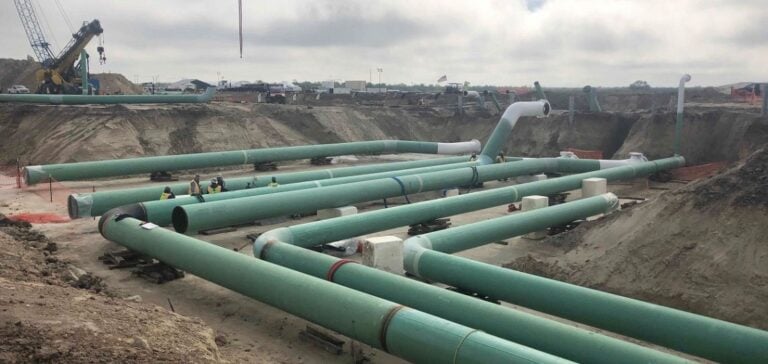Enbridge announces an increase of 120,000 barrels per day (b/d) for its Gray Oak pipeline.
This comes after a successful opening season, aimed at increasing exports from U.S. Gulf Coast docks.
CEO Greg Ebel emphasized the importance of this expansion during the presentation of the second-quarter 2024 financial results.
The 850-mile pipeline, with a design capacity of 1 million b/d, transports light oil from Crane to Corpus Christi.
The expansion will help meet growing demand for crude oil and natural gas transportation, particularly in the Permian Basin, where producers are looking for export solutions.
Storage infrastructure improvements
To support the expansion, 2 million barrels are planned to be added to the Enbridge Ingleside Energy Center (EIEC) in Corpus Christi, bringing total storage capacity to 20.5 million barrels by 2025.
This increase is essential to manage the growing volumes of crude oil exported from this facility.
At the same time, Enbridge is acquiring two docks and land adjacent to the EIEC for $200 million from Flint Hills Resources.
This acquisition will optimize operations and support future growth.
Impact on crude oil exports and Canadian production
In July, crude oil exports from the US Gulf Coast averaged 4.2 million b/d, of which 1.1 million b/d came from the Ingleside terminal, setting a new record.
Volumes on the Mainline, linking Alberta to the U.S.-Canada border, also reached record levels.
This increase in volumes is attributed to growing production in the Western Canada Sedimentary Basin (WCSB).
A 150,000 b/d expansion of the Mainline is planned by 2026 to meet demand from U.S. markets.
Blackcomb project for natural gas
A final investment decision is made for the Blackcomb pipeline, designed to transport 2.5 billion cubic feet per day (Bcf/d) of gas from Rankin to Agua Dulce.
This project is designed to increase export capacity for shippers in the Permian Basin.
Scheduled for completion in the second half of 2026, the pipeline will be built and operated by WhiteWater Midstream, subject to the usual regulatory approvals.
Challenges and prospects
Our solutions for North American producers have enabled us to achieve record volumes, with an increase of 74,000 b/d on the previous year for the Mainline.
This 3,000-mile-long system transports Canadian crude oil to refineries in the U.S. Midwest (PADD
II) and Gulf Coast refineries (PADD
III).
Growing production in the WCSB continues to boost transport volumes.
Enbridge is maintaining its forecast of 3 million b/d for 2024, and is planning an economic extension of 150,000 b/d on the Mainline for 2026, in response to strong demand for transportation to U.S. markets.






















